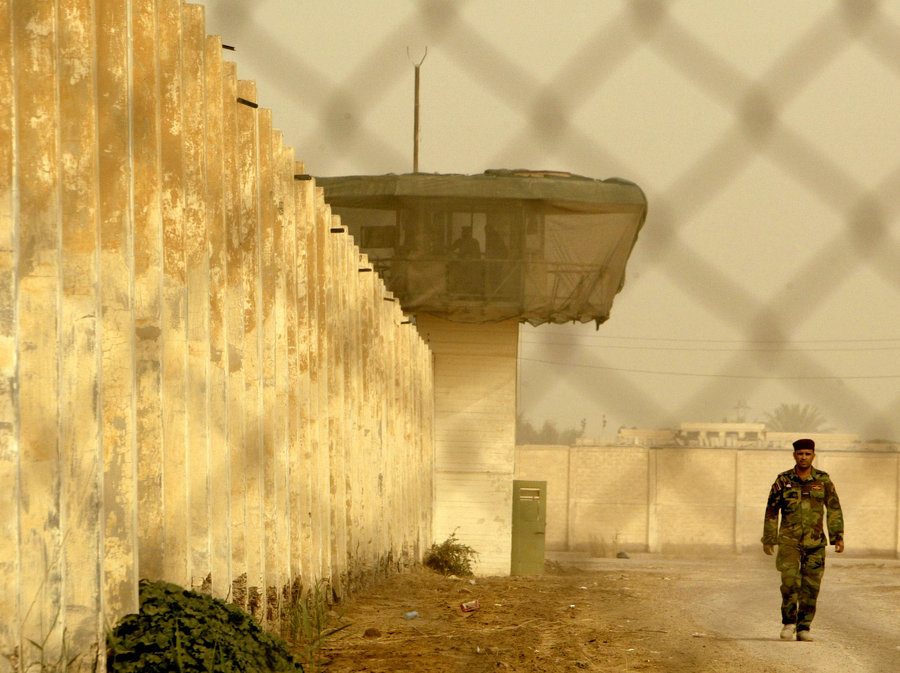Why the U.S. Needs to Stop Interfering with Foreign Conflicts
The United States is a global superpower, asserting its dominance almost everywhere around the world. Historically and currently, the United States has acted to “defend its interests.” However, these interventions can often be destructive, resulting in split governments, growing death tolls, and less money. Should the U.S. be stop participating in foreign conflicts?
The U.S. has, on multiple occasions, stepped into situations it should never have stepped into in the first place, like the the Vietnam War, the Korean War, and multiple strikes on terrorist organizations.
A prime example of what makes intervening problematic is the Middle East. After the United States’s many “wars on terror,” almost all of these countries have been ripped apart by civil unrest, civil war, and/or economic pandemonium.
A relatively recent conflict in which the U.S. caused chaos by stepping into was the Gulf War in Kuwait. In one attack on their enemy, the U.S. mounted bulldozer plows onto tanks and literally turned a trench into
a mass grave. Almost all the soldiers were killed, and not a single U.S. soldier was harmed. Additionally, a convoy of fleeing Iraqi soldiers were seen by U.S. reconnaissance units, who then informed their superiors, who then gave the order to destroy the convoy, which resulted in a highway full of charred corpses and vehicles, called the Highway of Death.

an armored bulldozer, like the ones that murdered the entrenched Iraqi troops

The fact that such inhumane and cowardly acts were committed is repulsive on its own, but the fact that the only reason to wage the war in the beginning was to protect a small country that would have had protection in the first place is even more angering.
On top of that, wars are draining, and the Gulf War ending with a grand total of $61 billion spent. Keep in mind that these are $61 billion of taxpayer money going to a war that resulted in multiple breaches of the standard codes of warfare.
Another problematic war in the Middle East is the Iraq War. Stretching from 2002 until now, it originally began with a strong military operation to overthrow Saddam Hussein’s regime as a part of the War On Terror. After the campaign was over, Saddam Hussein was gone, and Iraq was free from a terrorist-sponsoring regime. But Iraq was then unable to establish a new government, and chaos followed. Because of this, many of the original US troops deployed to the region cannot leave since order must be upheld. But should the military have stayed in Iraq?
After the offensive, the U.S. took a large amount of prisoners, who were then put in war prisons. One of these prisons, Abu Ghraib, subjected their prisoners to horrible conditions, including torture, rape, and treatment rumored to be worse than the Nazi death camps. When knowledge of this became public, the U.S. attempted to discredit the abuse as a lie. But many news sources began publishing this content and showing pictures taken by the torturers themselves. The images, which are not shown here due to their graphic nature, shocked the public; and an extremely gruesome picture was painted for the world. Combined with the appalling cost of the war, a British anti-war group decided to protest their disapproval in a 400,000-strong protest.
What did the war accomplish for the citizens of the United States? Nothing but a lesser chance of an Iraqi-sponsored terrorist attack and a greater chance of terrorist attacks from people angered by the abuse they were faced with by U.S. troops in Iraq.
All of these breaches of war codes and human rights abuses prove that the U.S. has had a bad track record, especially in Middle Eastern Operations. The U.S. has committed irreparable atrocities that should nullify its ability to participate further in foreign operations and restrict its interference with other conflicts in which it has no business interfering.







